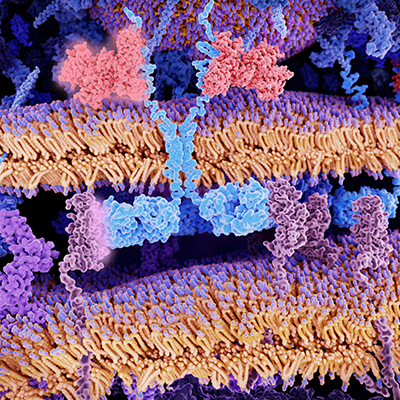November 9, 2022 -- Osaka University and Dusseldorf University researchers have found that a new radiopharmaceutical treatment targeting prostate-specific membrane antigen (PSMA) -- a protein expressed on prostate cancer cell surfaces -- can zero in on tumor cells with precision.
The study, published November 8 in the European Journal of Nuclear Medicine and Molecular Imaging, reported that this treatment effectively shrinks prostate tumors in mice.
Prostate cancer, a prevalent cancer among men, is increasing worldwide. Multiple metastases following conventional treatments are difficult to treat, with poor prognoses. Recent developments, including theranostics, may help. Theranostics involves finding and killing cancer cells anywhere in the body by delivering targeted radiation using radiopharmaceuticals -- drugs containing radioactive isotopes.
Targeted beta therapies have been shown to prolong overall survival rates. However, refractory cancers may resist beta therapy. While alpha therapy using the chemical element actinium (Ac-225) can be effective, Ac-225 must be produced in special accelerator facilities using rare and costly materials, limiting its production.
The study authors investigated the effectiveness of another radioisotope called astatine-211 (At-211), a less toxic alpha emitter that is relatively easy to manufacture with an accelerator using abundant materials. They implanted human prostate cancer cells in mice and treated them with a compound called [At-211]PSMA5, which effectively shrank the prostate tumors, with few side effects. The researchers now plan to launch an investigator-initiated clinical trial of [At-211]PSMA5 treatment for refractory prostate cancer.
"The results were very impressive," said co-author Dr. Frederik L. Giesel, a visiting professor at Osaka University, in a statement. "[At-211]PSMA5 accumulated at high levels in the tumor tissue and rapidly reduced tumor size."
Copyright © 2022 scienceboard.net










